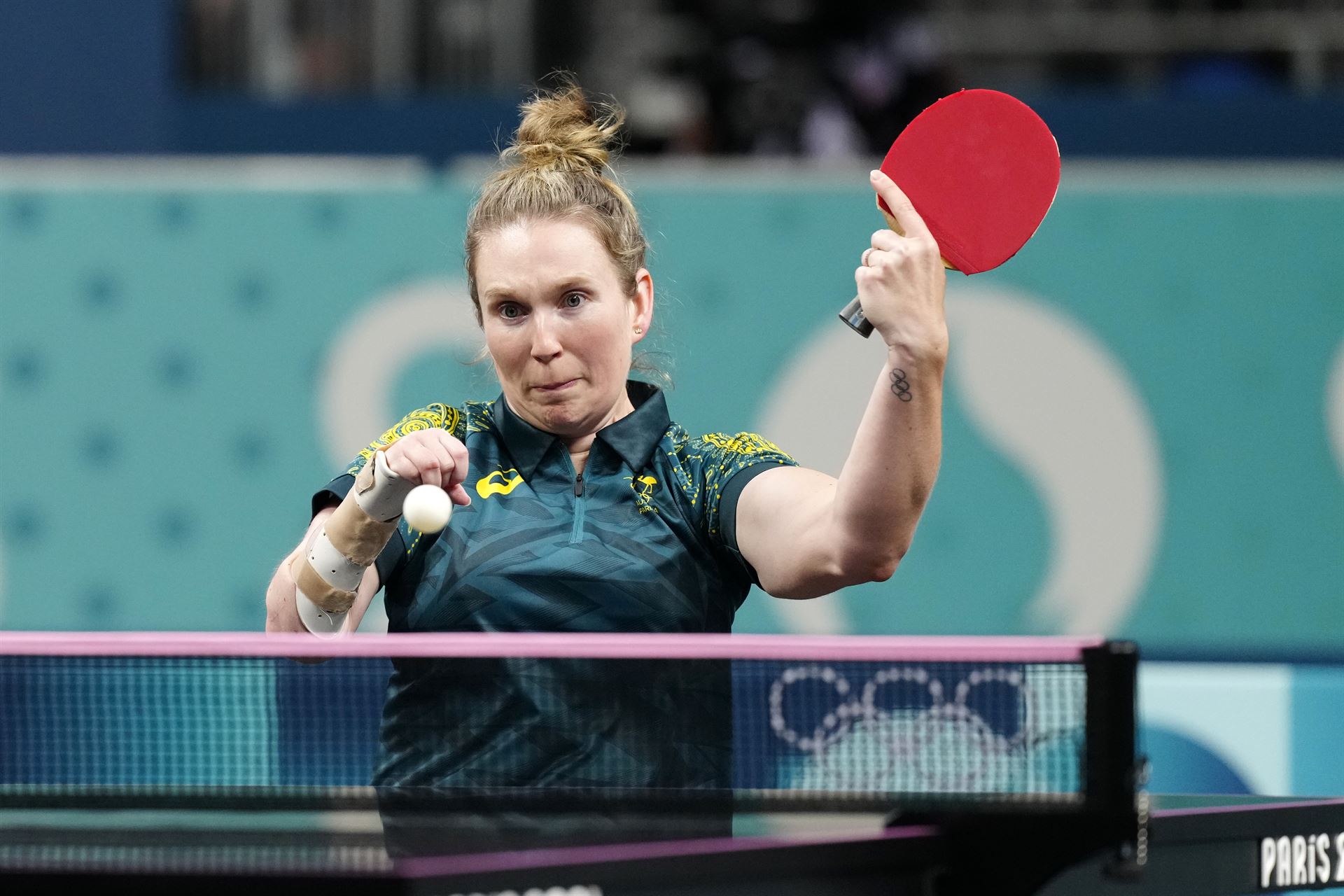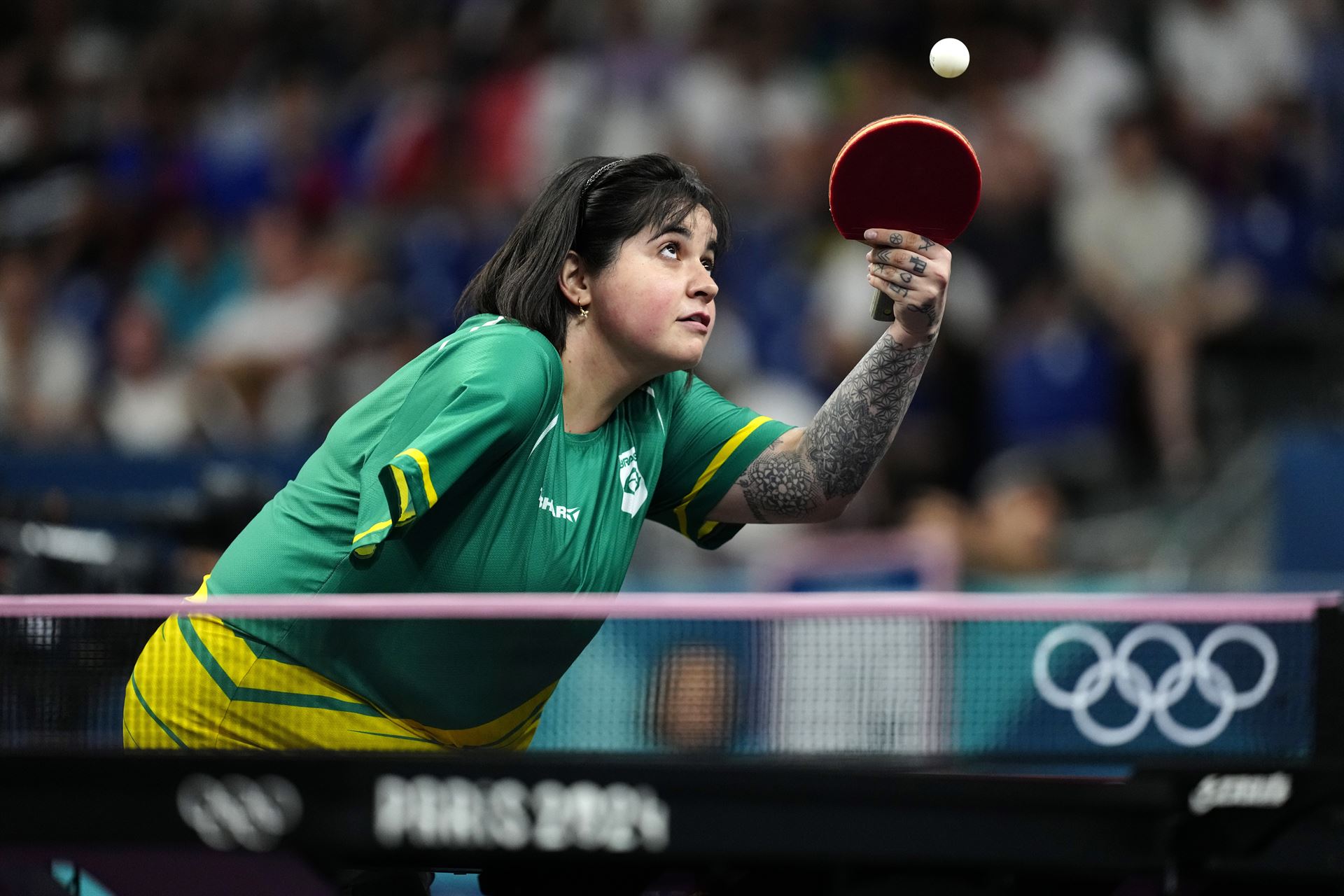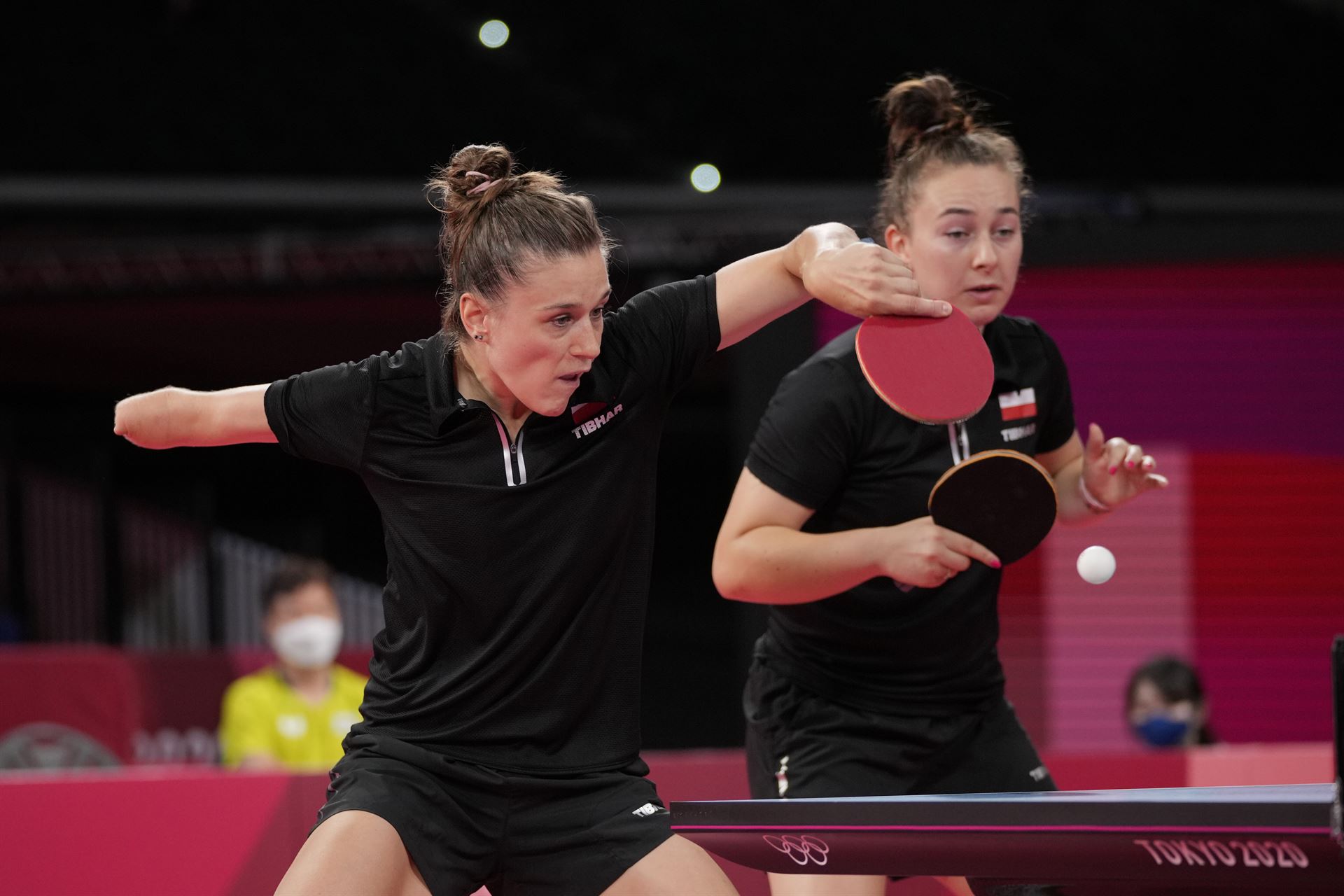
PARIS - For the first time, three Olympians have competed in the table tennis matches at the Paralympic Games in Paris.
The women's singles Class 10 is set to be the most competitive, with Paris 2024 Olympians Melissa Tapper of Australia, Bruna Alexandre of Brazil, and four-time Olympian Natalia Partyka of Poland all looking to dethrone the defending champion, Yang Qian of Australia.
Tapper is playing in her third Olympic-Paralympic double, while three-time Paralympic medalist Alexandre made her Olympic debut in Paris just weeks ago and has now returned for the Paralympic competitions at South Paris Arena.
ALSO READ: Macron opens Paralympic Games
Alexandre won the women's team bronze in non-para table tennis at the 2023 Pan American Games and is relishing the opportunity to compete again.
"I'm very happy to compete in both Olympics and Paralympics. It was a very special experience to be part of the Brazilian team in the Olympics. It's very hard in the Olympics because the level is higher," said the 29-year-old.
"I'm also much honored to represent the Brazilian athletes with disabilities. The people with disabilities should have more opportunities and the Paralympics is the perfect way," added Alexandre.

"It's very difficult to qualify for the Olympics as well as the Paralympics and I'm trying to make the most of this experience," Alexandre said. "I have to flip the switch. I try to adapt my game, slow it down a little bit, play different angles. I have 20 years of experience."
Compared to the Olympics, the Paris Paralympics did not have full spectators in South Paris Arena 4.
However, the stadium was still noisy, with spectators stamping their feet to cheer for the athletes.
The Brazilian told Xinhua she believed the competitions in women's singles Class 10 would be very tough, especially since Chinese athletes are hard to beat. "China is the most important power in the world of table tennis and is very much well known around the globe.
READ MORE: Afghan Khudadadi becomes first refugee to win Paralympic medal
Table tennis in China is like football in Brazil I guess in comparison," said Alexandre. "When I play against a Chinese player, I need to make some changes in speed and pace. Chinese players seemingly never make a mistake."
Yang and Partyka are also the main competitors in WS10. The Polish superstar had dominated this event for four consecutive Paralympics until Yang ended her streak in Tokyo.
Competing in her seventh Paralympics, Partyka seems more relaxed this time, as she won't play as the defending champion.
"It's a new situation for all the players. Maybe the defending champion (Yang Qian) has more pressure. I'd like to win and I know that I'm able to win," said the 35-year-old. "I was preparing for the games in the last two or three months and we'll give the spectators a good show."

Having played in both the Olympics and Paralympics four times from Beijing to Tokyo, Partyka did not compete in the 2024 Olympics, as she had decided to retire from the Polish national team.
"I think playing both is too much for me, but I still play in the professional league. It's time to say goodbye to the Olympics," said Partyka. "The Olympics level is much higher. The Chinese team is very strong and has always won first place. In the Paralympics, we have many classes. Everyone is different."
Speaking of her seventh Paralympics since her debut in Sydney at the age of 11, Partyka smiled, "It seems like I'll play forever.
READ MORE: Chinese Paralympic team arrives in Paris
I'm not that old, am I? I was talking to my friend and they're counting for me. It's my seventh and it's not bad, isn't it?" "I'm just trying to enjoy it as much as I can. I don't know how long I'll play. Maybe I'll play three more (Paralympics), two more, one more, I don't know. Everyone expects me to play longer," said Partyka.
Both Partyka and Alexandre won bronze medals in women's doubles Class 20 with their respective partners on Saturday.
Now, they are fully focused on the singles matches. "I prefer to play singles matches. When I play a doubles match, I need to think about my partner. It's pretty much about myself in the singles and easier to manage the rally," said Alexandre. "But the competitors are very dangerous. It's important to play with good mentality. I don't have time to think and just need to move forward."


